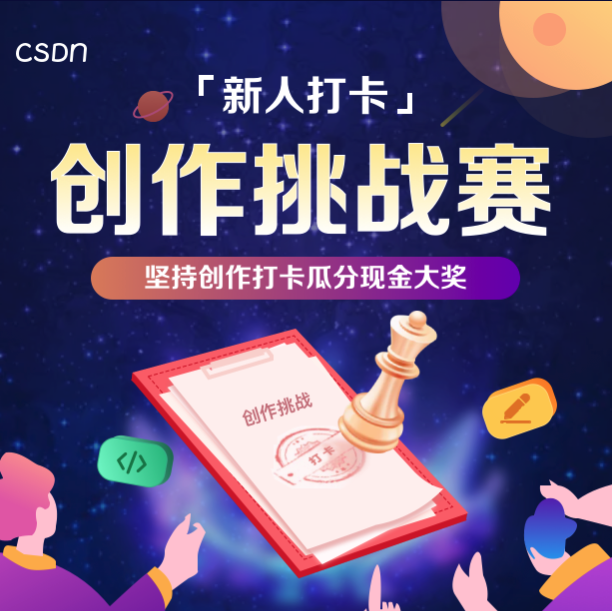主要讲解 vue+webSocket+springCloud消息推送交互项目实战;
话不多说,直接上代码;
一、后台代码:
1、pom里面加上依赖;
<!--webSocket坐标依赖-->
<dependency>
<groupId>org.springframework.boot</groupId>
<artifactId>spring-boot-starter-websocket</artifactId>
<version>2.2.4.RELEASE</version>
</dependency>
<dependency>
<groupId>org.eclipse.jetty.websocket</groupId>
<artifactId>websocket-server</artifactId>
<version>9.4.7.v20170914</version>
<scope>test</scope>
</dependency>2、webSocket配置文件
/**
* @description: webSocket配置类
* @author: xgs
* @date: 2020/2/11 11:14
*/
@Configuration
public class WebSocketConfig {
/**
* 注入ServerEndpointExporter,
* 这个bean会自动注册使用了@ServerEndpoint注解声明的Websocket endpoint
*/
@Bean
public ServerEndpointExporter serverEndpointExporter() {
return new ServerEndpointExporter();
}
}3、webSocket主类
package com.yzcx.project.service.webSocket;
import com.yzcx.common.constant.RedisKeyConstants;
import com.yzcx.onlinecar.util.RedisClient;
import org.apache.commons.lang3.StringUtils;
import org.slf4j.Logger;
import org.slf4j.LoggerFactory;
import org.springframework.beans.factory.annotation.Autowired;
import org.springframework.stereotype.Component;
import javax.annotation.Resource;
import javax.websocket.*;
import javax.websocket.server.PathParam;
import javax.websocket.server.ServerEndpoint;
import java.util.HashMap;
import java.util.Map;
import java.util.concurrent.CopyOnWriteArraySet;
/**
* @description:
* @author: xgs
* @date: 2020/2/11 11:56
*/
@Component
@ServerEndpoint("/websocket/{userId}")
//此注解相当于设置访问URL
public class WebSocket {
private static final Logger logger= LoggerFactory.getLogger(WebSocket.class);
private Session session;
private static CopyOnWriteArraySet<WebSocket> webSockets =new CopyOnWriteArraySet<>();
private static Map<String,Session> sessionPool = new HashMap<String,Session>();
/**
* 开启连接
* @param session
* @param userId
*/
@OnOpen
public void onOpen(Session session, @PathParam(value="userId")String userId) {
logger.info("开启连接userId:{}",userId);
this.session = session;
//userID为空不连接
if(StringUtils.isBlank(userId)){
return;
}
if(sessionPool.get(userId)!=null){
logger.info("此用户已存在:{}",userId);
sessionPool.remove(userId);
}
webSockets.add(this);
sessionPool.put(userId, session);
logger.info("【websocket消息】有新的连接,总数为:{}",webSockets.size());
}
/**
* 关闭连接
*/
@OnClose
public void onClose() {
webSockets.remove(this);
logger.info("【websocket消息】连接断开,总数为:{} this:{}",webSockets.size(),this);
}
/**
* 接收消息
* @param message
*/
@OnMessage
public void onMessage(String message) {
logger.info("【websocket消息】收到客户端消息 message:{}",message);
}
/**
* 异常处理
* @param throwable
*/
@OnError
public void onError(Throwable throwable) {
throwable.printStackTrace();
}
// 此为广播消息
public void sendAllMessage(String string) {
for(WebSocket webSocket : webSockets) {
// logger.info("【websocket消息】广播消息:{}",string);
try {
webSocket.session.getAsyncRemote().sendText(string);
} catch (Exception e) {
e.printStackTrace();
}
}
}
// 此为单点消息
public void sendOneMessage(String userId, String message) {
Session session = sessionPool.get(userId);
if (session != null) {
try {
session.getAsyncRemote().sendText(message);
logger.info("【websocket消息】发送消息userId:{} message{}",userId,message);
} catch (Exception e) {
e.printStackTrace();
}
}
}
}
4、使用场景:直接注入自己定义的?WebSocket ,用广播还是单点,自己直接用就行了;
5、注意点:
如果用了权限框架,记得加白名单? eg:? 如果用的是springSecurity? 需要在自定义的?SecurityConfig类中?antMatchers中加上?"/websocket/**";
如果用了nginx,还需要在nginx中加上配置;
location /xx_websocket {
?? ? ? ? ? ?proxy_pass http://localhost:9106/接口前缀/websocket;
?? ? ? ? ? ?proxy_http_version 1.1;
?? ? ? ? ? ?proxy_set_header Upgrade $http_upgrade;
?? ? ? ? ? ?proxy_set_header Connection "upgrade";
?? ? }
?
二、前端代码
注意:由于没有前端开发来写前端,前端代码可能会显得比较粗暴,但是能用;
前端用的是vue,废话不多说,接着上代码;
data() {
return {
websock: "", //webSocket使用
isConnect: false, //webSocket连接标识 避免重复连接
reConnectNum: 1, //断开后重新连接的次数 免得后台挂了,前端一直重连
};
},
watch: {
//监听用户信息,当登录了就有了这个用户ID,一开始他是空的
"$store.getters.userId": function (newValue) {
if (newValue) {
//登录后有值了就去创建WebSocket连接
if (newValue != null && newValue != "") {
console.log("userId有值了,去连webSocket");
this.initWebSocket();
return;
}
}
},
//监听当前路由地址 this.$route.path https://blog.csdn.net/start_sea/article/details/122499868
"$route.path": function (newValue) {
if (newValue) {
//曲线救国,指定一个路由名字,当点到这个路由的时候,如果webSocket没有连接,则主动去给他连接一次
if (newValue == "给一个路由名") {
if (!this.isConnect) {
this.reConnectNum = 1;
this.initWebSocket();
}
}
}
},
},
methods:{
/*webSocket start*/
initWebSocket() {
console.log("进入initWebSocket");
let userId = this.$store.getters.userId;
console.log("系统用户ID:" + userId);
if (userId != null && userId != "") {
// WebSocket与普通的请求所用协议有所不同,ws等同于http,wss等同于https
//本地环境
// let wsServer =
`${
location.protocol === "https" ? "wss" : "ws"
}://localhost:9106/接口前缀/websocket/` + userId;
//线上环境
//webSocket 前面加一个前缀xxx_websocket_ 区分后面其他项目的webSocket
let wsServer = "wss://域名地址或ip加端口/ nginx配置的 xxx_websocket/"+ userId;
console.log("wsServer:", wsServer);
this.websock = new WebSocket(wsServer);
this.websock.onopen = this.websocketonopen;
this.websock.onerror = this.websocketonerror;
this.websock.onmessage = this.websocketonmessage;
this.websock.onclose = this.websocketclose;
}
},
websocketonopen() {
console.log("WebSocket连接成功");
//连接建立后修改标识
this.isConnect = true;
},
websocketonerror(e) {
console.log("WebSocket连接发生错误");
//连接断开后修改标识
this.isConnect = false;
//连接错误 需要重连
this.reConnect();
},
//接收后端推送过来的消息
websocketonmessage(e) {
//console.log(e)
console.log("接收到后端传递过来的消息", e.data);
if (e != null) {
let str = JSON.parse(e.data);
//todo 拿到消息了想干嘛就干嘛
}
},
websocketclose(e) {
//console.log("webSocket连接关闭:connection closed (" + e.code + ")");
console.log("webSocket连接关闭");
//连接断开后修改标识
this.isConnect = false;
this.websock='';
this.reConnect();
},
reConnect() {
console.log("尝试重新连接,本次重连次数:" + this.reConnectNum);
if (this.reConnectNum > 6) {
console.log("重连超过6次不再重连");
return false;
}
//如果已经连上就不再重试了
if (this.isConnect) return;
this.initWebSocket();
this.reConnectNum = this.reConnectNum + 1;
},
/*webSocket end*/
}
代码都写得这么清楚了,如果还是不会请留言,有更多的想法请留言,一起交流;
喜欢就关注,不定期还有干货!
